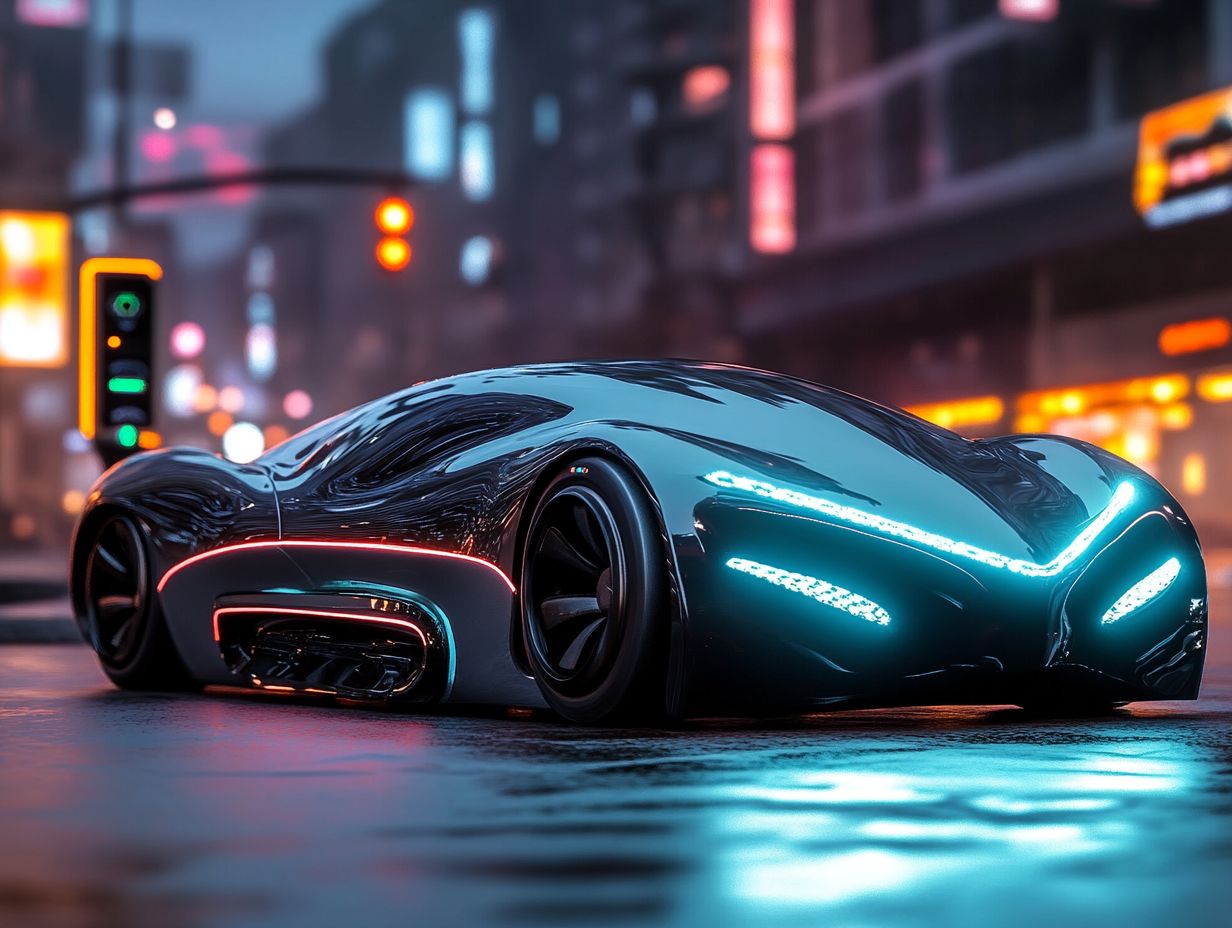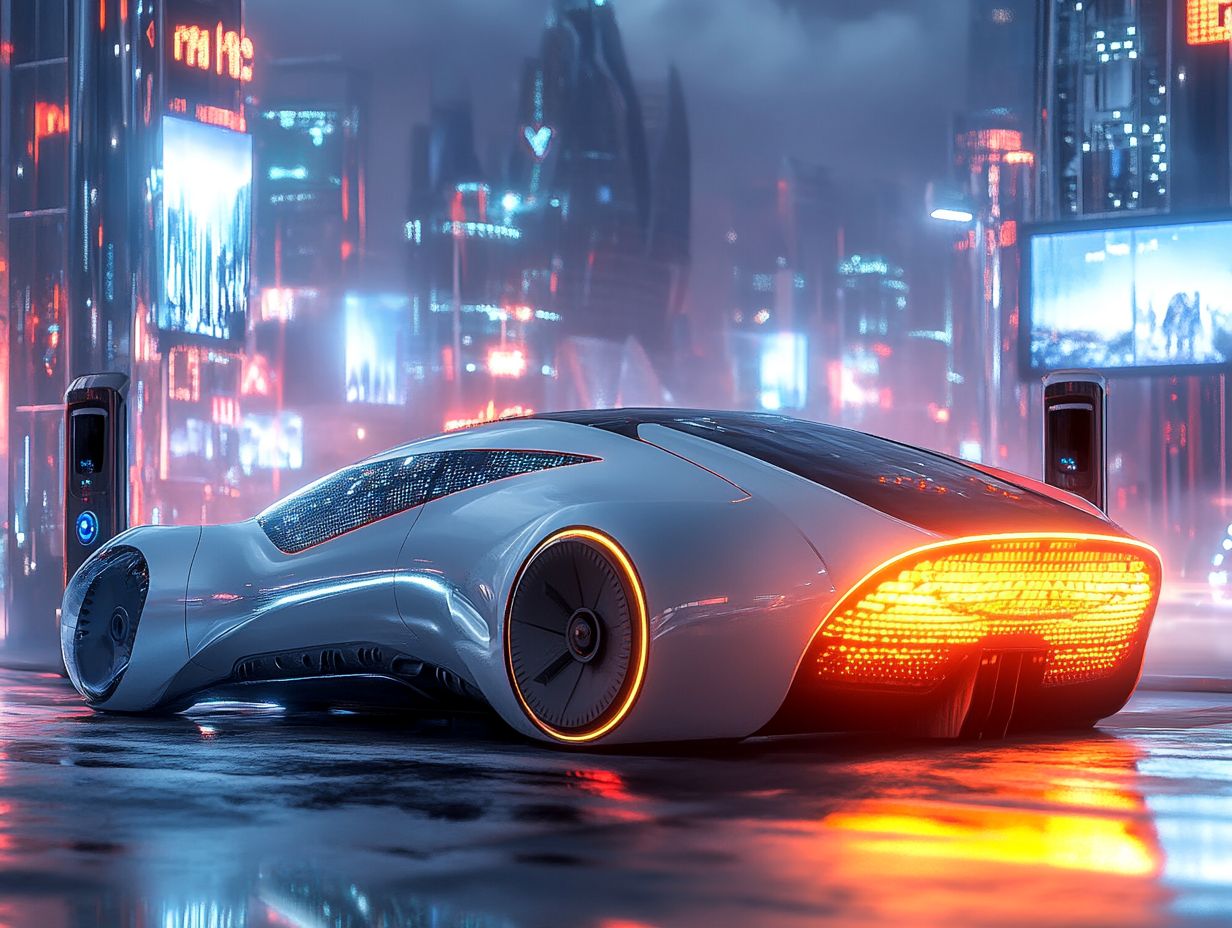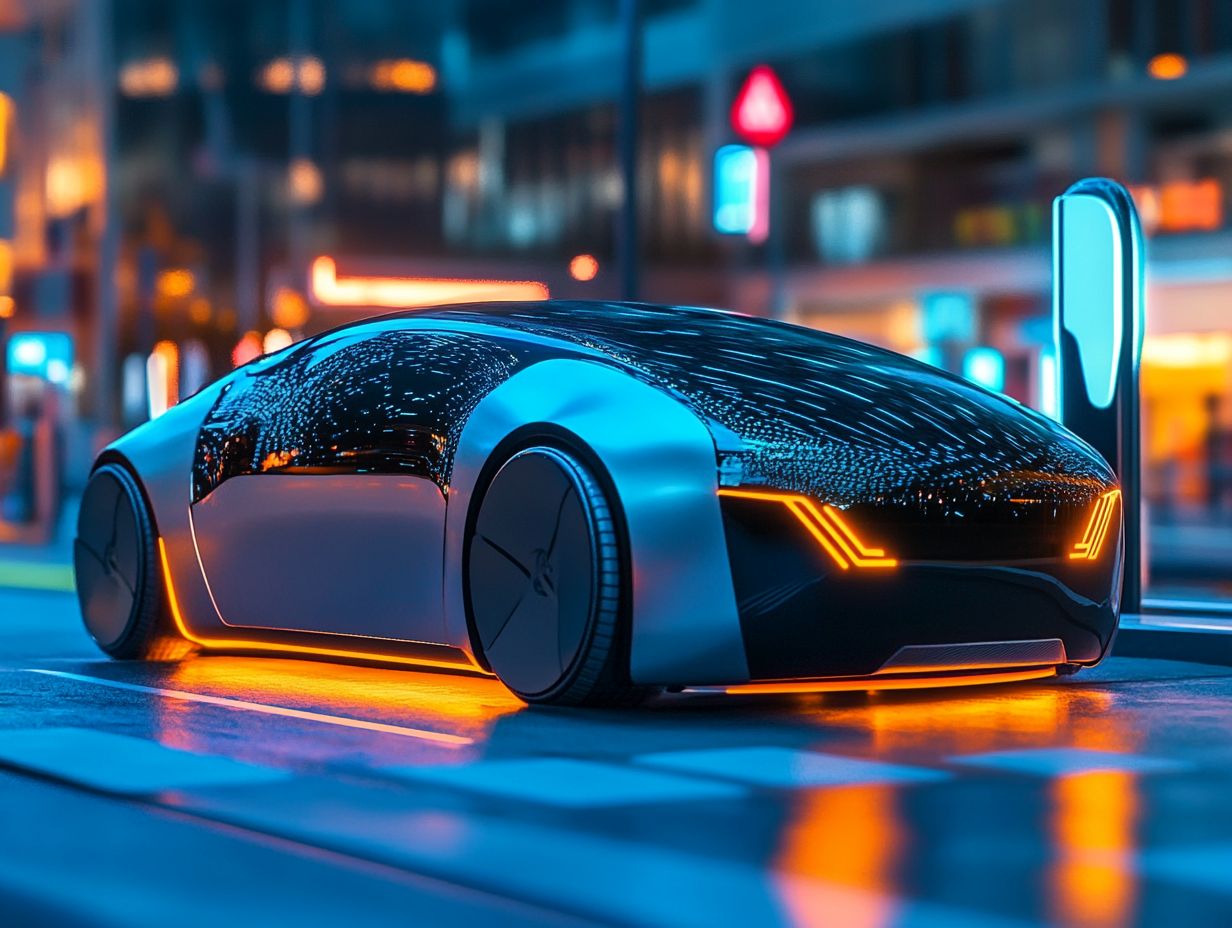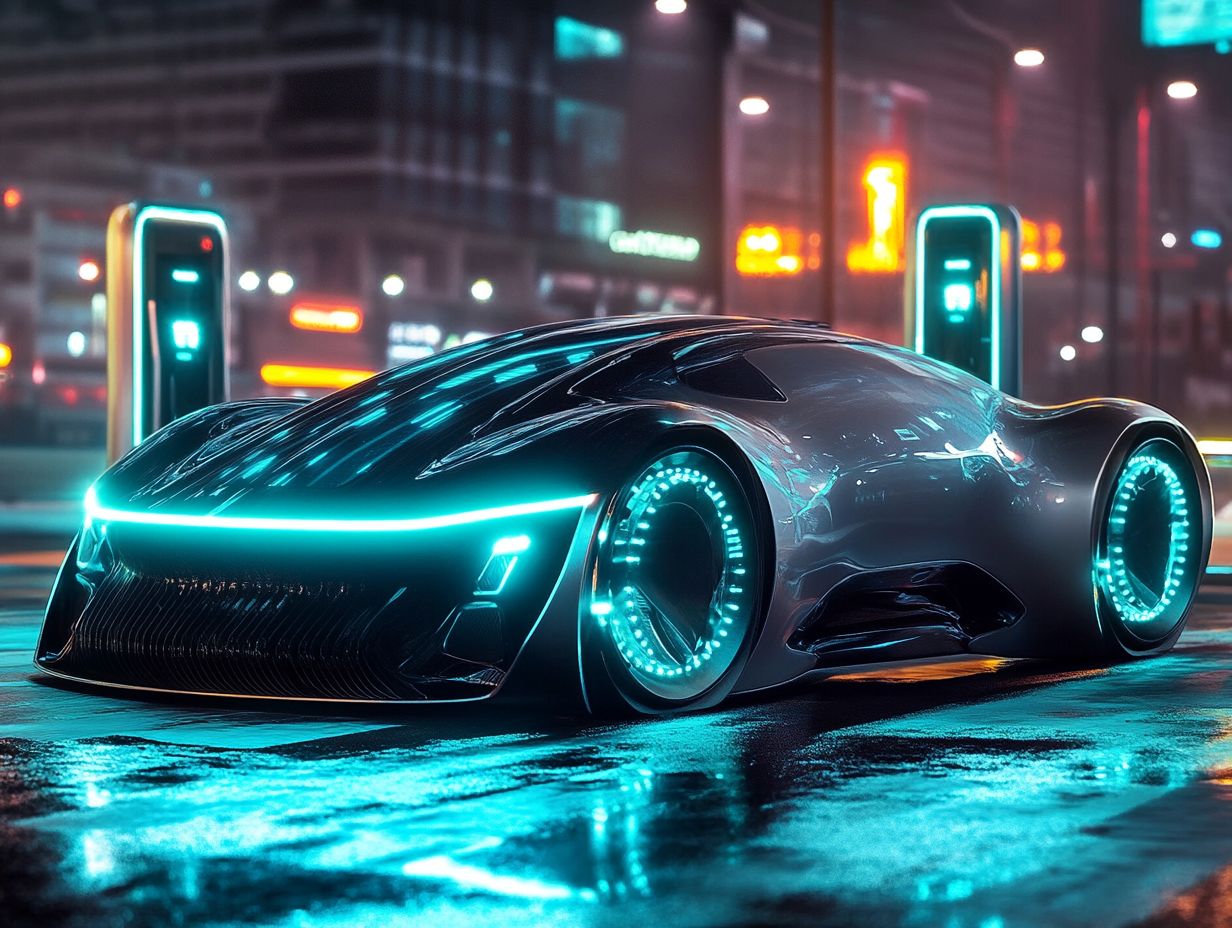The Future of New Car Technology
Car technology has truly evolved, revolutionizing not just how you drive but also how you experience transportation as a whole. Get ready to dive into an exciting exploration of the current state of car technology.
From early innovations to groundbreaking advancements, the automotive landscape is in constant flux. In this exploration, you ll uncover popular features and emerging trends. You ll also peek into the future to see what advancements may reshape the industry.
Key challenges such as safety, privacy, and environmental concerns are pivotal in shaping the future of driving. Join us on this captivating journey through the evolution of car technology and discover its implications for drivers like you everywhere.
Contents
- Key Takeaways:
- The Evolution of Car Technology
- Current State of Car Technology
- Future Advancements in Car Technology
- Impact on the Automotive Industry
- Challenges and Concerns
- Frequently Asked Questions
- What is the future of new car technology?
- Will electric cars become the norm in the future?
- How will self-driving cars change the way we commute?
- What are some new features we can expect in future cars?
- What impact will new car technology have on the environment?
- How will new car technology affect the automotive industry?
Key Takeaways:

- Car technology has greatly advanced, with innovations like self-driving and electric cars paving the way for the future.
- The current landscape features advanced safety systems and digital connectivity, with trends leaning towards sustainability and convenience.
- The future of car technology holds endless possibilities, from fully autonomous vehicles to new energy sources, while posing challenges in production, sales, and ethics.
The Evolution of Car Technology
The evolution of car technology presents a fascinating narrative of significant innovations. It moves from traditional fuels to the sleek embrace of electric vehicles and now ventures into the realm of autonomous vehicles that redefine mobility-on-demand the ability to get transportation whenever you need it.
As you observe the automotive industry adapting to the brisk pace of tech advances, it’s clear that manufacturers like Tesla and BMW are leading the charge. They are seamlessly integrating digital technologies and advanced battery solutions to meet your expectations.
This journey embodies a commitment to sustainability as they explore new energy sources and tackle climate responsibility. They deftly navigate the complexities of industry competition.
From Early Innovations to Modern Advancements
Your journey through the automotive industry reveals a fascinating evolution. It ranges from early innovations that relied on traditional fuels to today s cutting-edge electric and autonomous vehicles.
This transformation highlights remarkable technological advancements while reflecting a shift in consumer preferences and growing environmental awareness.
Consider pioneering inventions like the internal combustion engine and the assembly line. These laid the groundwork for mass production, making cars accessible to the broader public. As these technologies evolved, they paved the way for electric vehicles that emphasize sustainability, appealing to the increasingly eco-conscious consumer.
Advancements in artificial intelligence the simulation of human intelligence processes by machines and sensor technology devices that detect and respond to environmental inputs have ushered in the era of autonomous vehicles. These innovations revolutionize transportation, improve safety, and provide options that resonate with your values and lifestyle, redefining mobility for generations to come.
Current State of Car Technology
The current landscape of car technology features a remarkable rise in electric vehicles and the advent of autonomous driving, fundamentally transforming your understanding of mobility and transportation solutions.
Connected cars, equipped with cutting-edge driving technology, are rapidly becoming standard. This is bolstered by an expanding network of charging infrastructure that emphasizes energy efficiency.
With industry leaders like Toyota and Tesla at the forefront, the automotive sector is adapting to market trends and evolving consumer preferences. They are also diligently working to uphold rigorous safety standards.
Popular Features and Trends

In today s automotive market, you ll find popular features and trends that include electric vehicles, autonomous vehicles, and connected cars. These innovations use advanced driving technology to improve user experiences.
With competition at an all-time high, manufacturers are emphasizing safety standards and innovative functionalities to meet ever-evolving consumer expectations.
Among these cutting-edge advancements, advanced driver-assistance systems (ADAS) features that help drivers avoid accidents are gaining significant traction. You can now enjoy features such as adaptive cruise control, automatic emergency braking, and lane-keeping assist.
Take Tesla, for example; it has gained recognition for its Autopilot feature, which enhances driving convenience and aims to improve overall road safety.
Ford and BMW are actively integrating connected vehicle technology, allowing cars to communicate with each other and with traffic infrastructure. This dynamic interaction reduces accident risks and promotes smoother traffic flow.
As these advancements become the norm, they transform how you interact with your vehicle, creating a more secure and engaging driving environment.
Future Advancements in Car Technology
As you look ahead, the future advancements in car technology offer a promising landscape where electric and autonomous vehicles seamlessly integrate. For insights into upcoming trends, check out the future of performance cars, as this evolution opens doors to exciting new transportation solutions that prioritize efficiency and sustainability.
With technology continuously advancing, you can expect remarkable developments in driving automation, including self-driving cars that harness the power of robotics and artificial intelligence to enhance the user experience.
This paradigm shift is designed to satisfy the increasing consumer demand for mobility-on-demand services while ensuring the automotive industry stays competitive and sustainable.
Predictions and Possibilities
Predictions for the future of cars paint a picture where electric and autonomous vehicles reign supreme, fundamentally transforming urban mobility through cutting-edge technologies and mobility-on-demand services.
Experts envision remarkable advancements in driving automation and robotics that could radically change your relationship with your vehicle.
These innovations are set to reshape societal norms, encouraging a shift toward shared transportation options and reducing the need for individual car ownership.
As electric vehicles become more accessible, now is the time to choose sustainable options, fostering a sense of collective responsibility for environmental stewardship.
Consider innovations like vehicle-to-grid technology, which empowers you to play a role in energy solutions, reshaping how energy is consumed. The rise of smart cities will enhance connectivity, leading to smoother traffic flow and diminished congestion, dramatically transforming your daily commuting experience.
Impact on the Automotive Industry
The influence of advancements in car technology on the automotive industry is transformative, affecting everything from vehicle manufacturing processes to sales strategies and maintenance practices.
With electric vehicle sales on the rise, car manufacturers are increasingly compelled to refine their marketing strategies and innovate production methods to meet the growing demand for mobility services.
As these changes unfold, this shift will reshape the insurance industry, adapting to your changing needs as a vehicle owner in this dynamic landscape.
Changes in Manufacturing, Sales, and Maintenance

Changes in manufacturing, sales, and maintenance processes within the automotive industry are being driven significantly by the surge in electric vehicle sales and the rising demand for mobility services. This showcases a fundamental shift in consumer preferences.
Manufacturers are now heavily investing in streamlined production solutions while adapting their sales strategies to keep pace with these evolving market trends.
Take Tesla, for example. They ve completely transformed production techniques by using smart machines and software, allowing for faster assembly and lower costs. Established giants like Ford and General Motors are pivoting towards more sustainable manufacturing practices, utilizing a method to quickly create parts using a printer.
These innovations boost efficiency and enable a quicker response to your preferences as a consumer. Ultimately, this enhances customer satisfaction.
As manufacturers embrace these changes, you will enjoy greater flexibility and personalization options in your purchasing decisions, contributing to a more connected and responsive automotive ecosystem.
Challenges and Concerns
Even with remarkable strides in car technology, several challenges and concerns still loom large. This is especially true in areas like safety standards, privacy, and environmental impacts.
As the automotive industry navigates consumer issues and grapples with supply chain shortages, ensuring your driving safety remains a paramount focus for both manufacturers and regulators.
We urgently need sustainable solutions now, especially with the increasing scrutiny over carbon emissions and the promising potential of hydrogen as an alternative energy source.
Addressing Safety, Privacy, and Environmental Issues
Tackling safety, privacy, and environmental concerns is essential in the automotive industry. Consumers increasingly demand higher safety standards and more environmentally responsible practices.
To rise to these challenges, companies are adopting advanced features like autonomous driving technology, which aims to reduce accidents through sophisticated algorithms.
Leading manufacturers have begun implementing comprehensive data protection measures to safeguard driver information, showcasing a strong commitment to privacy.
Notably, a major automaker has launched an eco-friendly initiative focusing on electric and hybrid vehicles, significantly reducing their carbon footprint.
Such proactive steps enhance consumer trust and align with global sustainability goals, paving the way for an innovative and responsible automotive landscape.
Frequently Asked Questions
What is the future of new car technology?

Get ready for an exciting journey into the future of car technology, where electric and self-driving vehicles are just the beginning. We can also expect new car features in 2024, including the integration of cutting-edge advancements like voice recognition and artificial intelligence.
Will electric cars become the norm in the future?
It is predicted that electric cars will become more prevalent as the world shifts towards sustainable and eco-friendly transportation. Many major car manufacturers have already committed to producing more electric vehicles in the coming years.
How will self-driving cars change the way we commute?
Self-driving cars have the potential to completely revolutionize commuting. They can increase safety, reduce traffic congestion, and provide a more efficient and stress-free experience for drivers.
What are some new features we can expect in future cars?
Future cars are expected to have advanced features such as augmented reality displays, biometric sensors, and intelligent personal assistants that can anticipate a driver’s needs and preferences.
In conclusion, the automotive industry is undergoing significant changes, driven by technological advancements and consumer demands. Embrace the innovations and look forward to a more sustainable and exciting future in automotive technology!
What impact will new car technology have on the environment?
New car technology, especially electric vehicles, promises a cleaner future. These cars reduce carbon emissions and our reliance on oil.
However, we must consider the environmental effects of producing and disposing of electric car batteries.
How will new car technology affect the automotive industry?
New car technology is transforming the automotive industry! To stay competitive, manufacturers and dealers must adapt and invest in the impact of technology on new car buying.
This shift may also change what consumers want and how we buy and use cars.






